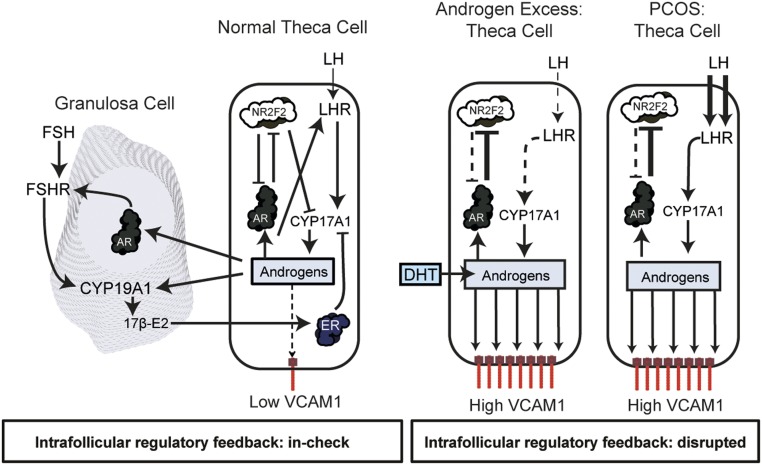Figure 9.
Elevated androgens alter intrafollicular regulatory mechanisms that impact the expression of VCAM1 and the expansion of VCAM1+ cells in the stroma. In the normal follicle, LH induction of androgen biosynthesis in theca cells is critical for androgen action via AR in granulosa cells, leading to the induction of FSHR and CYP19A1, the enzyme that converts androgens to estrogens. Estrogens, in turn, bind estrogen receptors (ESR1) in theca cells to suppress the activity of CYP17A1. Similar to granulosa cells, theca cells express AR. However, unlike granulosa cells, theca cells also express NR2F2, a coregulatory molecule that can modulate/suppress AR functional activity and the activation of AR target genes such as VCAM1. We hypothesize that in the presence of excess androgens (such as in the DHT mouse model) or in theca of patients with PCOS who express elevated endogenous androgens, chronic activation of AR by androgens disrupts the AR–NR2F2 regulatory feedback mechanism, leading to marked induction of AR target genes such as VCAM1. When this regulatory pathway is disrupted, elevated androgens promote the expansion of Leydig-like VCAM1+ theca and stromal cells within the ovary.

